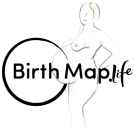Informed Birth Preparation puts you in the drivers seat. You get to determine the route, including any detours. You choose the music, the companions and guide the conversation.
Taking the drivers seat takes some responsibility. And it gives you immense power. In this post, we explore what it takes to have an informed and positive birth, and discover the benefits of taking the effort and stepping up to own your birth. Are you ready? Most women make some sort of preparation for birth. Often this involves reading books and searching the internet. It might include joining a facebook group, or several. Some women are content to “go with the flow” for birth, and focus more on setting up a nursery. The goal is a baby, not a ‘birth experience’. In setting up a nursery, the focus is often on products rather than preparations for parenting.
There is usually an assumption that the care providers have the birth side of things under control. What could you possibly do? The care providers are the qualified ones, you can’t control the birth, but you can control your purchases.
This might seem reasonable, but we are seeing an increase in birth disappointment and birth trauma. This is in part because we have a birth vision – and our assumptions will be heavily influenced by this. Your vision might be one of immediate pain relief. It might be one of a natural birth. Whatever our birth vision is, we usually assume we will experience that.
For birth to be positive, we need to step up and take responsibility in order to express our power. To do this, we need to know The Questions to ask. We need to understand the different models of care, and determine which best fits our birth vision. Aligning yourself with the best care provider for you is the first step to a positive experience, rather than a processed experience.
So what does it take to have an informed birth?
You will need to invest some time, and money, into your preparations. If money is tight, you can ask for support to cover these preparations; perhaps friends and family will contribute to your preparation in lieu of gifts. You may also find that these preparations help you avoid unnecessarily large purchases of baby products. Many women prefer to invest in the preparations rather than purchase an overly expensive pram or nursery furniture (you might be surprised at how little you actually need for your baby).

KNOW THE QUESTIONS
THE BOOK gives you the Questions. These are your prompts to begin your research in a more meaningful and relevant way, and to begin conversations with your care provider. Depending on the model you choose, or find yourself in, you may need to repeat these questions with several care providers in order to build a picture. This helps you to understand the landscape you will need to navigate. It also helps you to make informed decisions, in advance, for various possibilities. This way as you navigate the birth, you will be better able to understand where you are and what your options are. Knowing each possible pathway that follows a decision point takes the guesswork out. This is important, because you are required to provide informed consent (or refusal) at various points. This means you have options. Being asked for consent, means you also have the option to refuse. You need to know what each of these scenarios look like.

KNOWLEDGE IS POWER
Independent birth classes help build your knowledge of birth; natural and within the medical system. Many parents also find attending breastfeeding education classes (such as those run by the Australia Breastfeeding Association) builds knowledge and aids preparations.

SEEK SUPPORT
Another assumption that is generally made, is that our care provider will be with us during labour and birth. The reality is that less than 10% of women in Australia will receive continuity of care with a known midwife. The standard model of care is fragmented, and you will be relying heavily on your partner to support you. Your midwife is likely to be limited in the support they can give, and it may be focused on monitoring or assessing. This is where a birth doula comes in. The birth doula provides support to you, and your partner. Usually you meet with your doula as you prepare, they help with your knowledge building and preparations (including your birth map) and can support you during labour. Postpartum doula support extends into your early week, and even months.
And what do you get for all this?
These preparations will give you the confidence to make informed decisions. We know that preparations like this led to fewer interventions, and any interventions you do have are with your full understanding. This means informed consent or refusal, based on a decision where you know your options.
This benefits you, as the birthing woman, your partner and your care provider. In the absence of continuity of care, your partner (and/or doula) are able to advocate for you with confidence based on informed decisions for various scenarios. They are able to fully support you, rather than feeling lost and uncertain or worried.
Any fears and uncertainties are addressed in advance and replaced with understanding. You can make decisions calmly, and with conviction. This means improved communication, which increases the feelings of respect and involvement.
